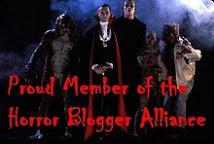Though Scream Week is in our past, I must admit that there's been a bit of Wes Craven stuck in my head the last few days. As I remembered the steps taken to empower Neve Campbell's Sidney Prescott in the Scream films, I couldn't help but think of Craven's maligned little summer-time thriller Red Eye.
Rachel McAdams and Cillian Murphy star in a taut bit of airline drama, as a success driven hotel manager and the mysterious man who aims to intimidate her. Though the film has some serious flaws in its execution - the final act is a bit too Tom and Jerry for my tastes - the relationship between these characters and the film's stance on gender roles is what really keeps me coming back to the film.
McAdams' Lisa is introduced to us through her interactions with others, and is quickly established as a strong female character who can manage a work-based crisis over the phone while racing to catch a plane after leaving her grandmother's funeral. But through all her strengths, she's still painted as a woman. In the eyes of Murphy's Jackson Rippner - who is tasked with intimidating her into helping carry out a political assassination - that's a fault that can be exploited.
Rippner is a suave character who could definitely charm the pants off of the cougar who's been eyeing him from the other side of the plane, but he's also a bit of a misogynist. His theories about how to deal with Lisa are based partially on eight weeks of stalking, but also on his own perceptions of gender roles. At one point he even takes the time to lament Lisa's "female-driven, emotion-based dilemma" by countering with "male-driven, fact-based logic". To the character, these are the facts of life. This is how he believes gender roles work.
Having grown up in a small town and a rural setting, I'm sad to admit that there are still people out there today - people who are far less tactful than this egomaniacal male character - who actually believe there are facts that back up these opinions. That women can not make decisions without emotion and that men can therefor control all crisis situations in a manner that women can not. It's appalling, to be sure, but it's a little more unsettling coming from Murphy's character. This is a man who is obviously trained in various schools of thought, the kind of man who might have a bit more knowledge of gender roles, yet his comments continually seem designed to demean Lisa for being an inferior woman.
Lisa's transformation throughout the film is something to behold. Though we quickly see that she is a strong person who can deal with problems on the go, but she does have her weaknesses and Jackson aims to exploit them. None of this would work if McAdams wasn't able to deliver a gamut of emotions as Lisa goes through the stages of conflict, and none of it would seem worthwhile if Murphy wasn't able to play both a snake charmer and a cunning adversary. Both leads do exactly what is necessary to carry the film, and without them Lisa's late night flight wouldn't seem so tense.
And then something amazing happens in the final act of the film, and suddenly the film takes on a deeper meaning. Lisa recounts a previous trauma which left her physically and emotionally scarred, and Jackson assumes that she's still lamenting the fact she couldn't prevent what happened to her. But the fear behind Lisa's eyes is gone, and she lets him in on a little fact - she's ready to prevent the next trauma from happening to her. And she starts to follow through on that immediately, with an assist from a well placed Frankenstein-shaped pen.
Y'know, I take back what I said earlier. The final act is not "a bit too Tom and Jerry for my tastes". Seeing McAdams' Lisa, who has been emotionally abused and written off as inferior because of her gender for an entire night (not to mention the things she has to put up with on a daily basis just because she's a woman) is an exhilarating sight. Murphy's big bad wolf no longer has a bite that effects her, because she's done accepting her place as a victim. It might lose a little bit of focus with all the lacrosse bats and rocket launchers and SUV crashes, but the message is still the same: Lisa has had enough of being pushed around by those who assume her gender makes her an easy target.
Red Eye may not have the iconic status of Craven's other women-in-peril films, but there's something about the stripped down, one-on-one approach to Red Eye that lifts it to a special place. It's two solid actors taking a high concept thriller and turning it into something fascinating because it's willing to address gender stereotypes and to surprise the viewer by flipping the tables mid film. The battle that plays out on screen is a tribute to strong women everywhere, and I've seen domestic abuse dramas that aren't near as adept at showing how men can try to overpower women mentally and physically. It's a little too polished and glossy for hardcore horror fans, but I think it's a nice little diversion that's head is in the right place. Craven has done some great things for strong women in horror, and Red Eye is certainly a success in the same ways Scream and A Nightmare on Elm Street were.
Dirty Pillows For All
2 days ago
















1 comment:
The only mildly entertaining film Wes Craven has directed since 1997. And I mean that sincerely.
Post a Comment